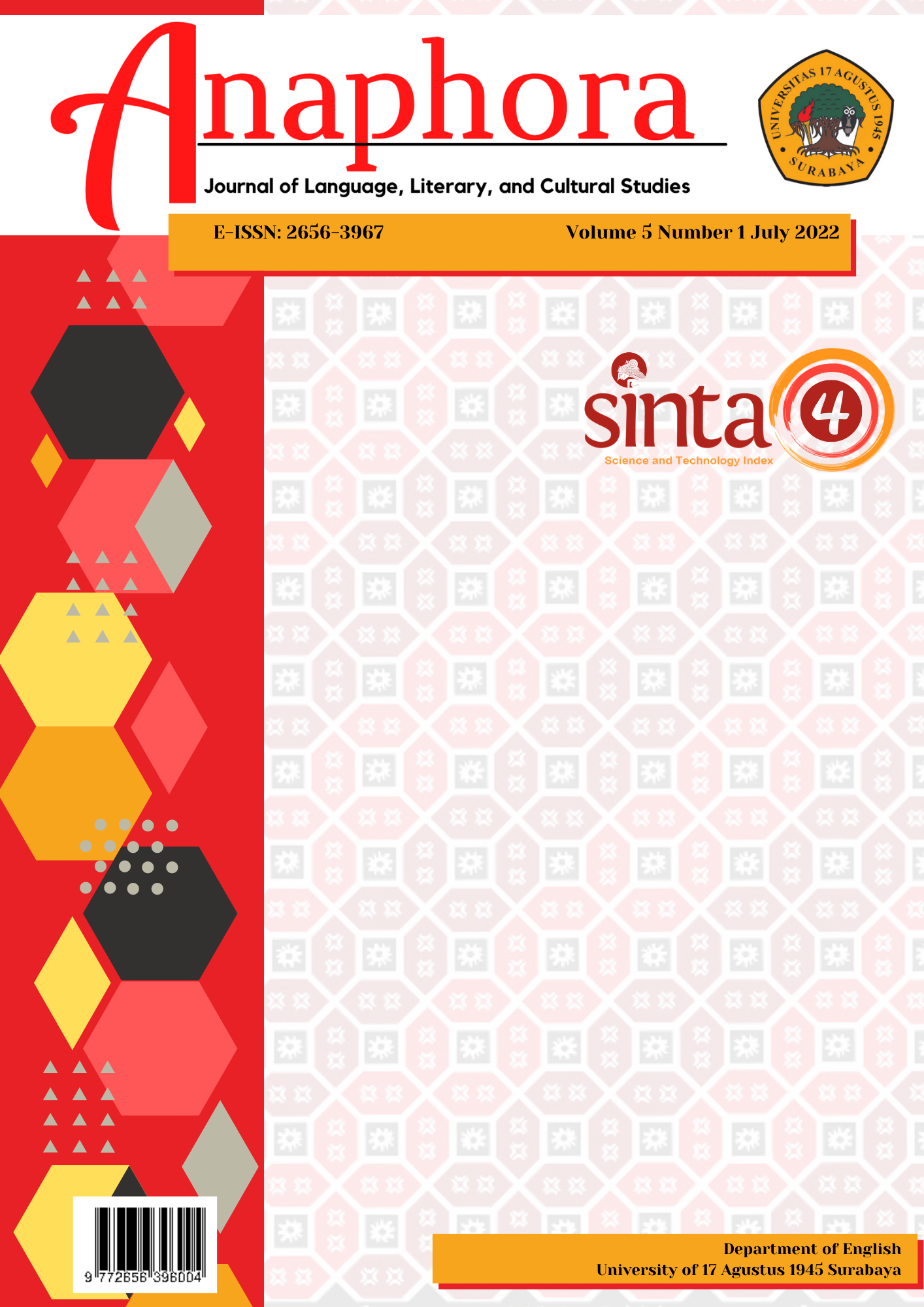Picturing Homosexual Gesture in Call me by Your Name: Gender Performativity, Sexual Identity, and Sexual Activity
DOI:
https://doi.org/10.30996/anaphora.v5i1.6410Keywords:
homosexual gesture, gender performativity, queer theory, sexual identityAbstract
The issue of LGBT is becoming one of the research fields investigated in literary studies. This topic has its critical academic discussion, especially how this behavior is related to gender, identity, gender role, and even considered destructive religious. This research aims to explore how homosexuality is depicted through homosexual gestures pictured in Call Me by Your Name, a film directed by Luca Guadagnino and released in 2017 at the Sundance film festival, United Kingdom, and the United States. This film successfully received the Best Adapted Screenplay at the 2018 Oscar. The method used is qualitative and engages with queer, Judith Butler on Gender performativity. The technique is a narrow textual analysis in which we are focused on the insight of the film's narrative text and images. We explore the homosexual gesture in Call Me by Your Name as presented by the film’s main characters, Ellio and Oliver by focusing on three performativities, namely, performance, homosexual identity, and sexual activity. The results show that in the form of homosexual gestures obtained: First, the performativity of the performance describes the general character and clothing worn by Elio and Oliver as a same-sex couple. Second, the performativity of homosexual identity shows that the actors are homosexual men. Third, the performativity of sexual activities such as kissing, and sexual deviations that are carried out in inappropriate places. In addition, the sexual relations between characters show the homoeroticism of sexual role stability, where there is a character who identifies with the sexual experience of the partner.
Downloads
Downloads
Published
How to Cite
Issue
Section
License
Authors whose manuscript is published will approve the following provisions:
-
The right to publication of all journal material published on the jurnal anaphora website is held by the editorial board with the author's knowledge (moral rights remain the property of the author).
-
The formal legal provisions for access to digital articles of this electronic journal are subject to the terms of the Creative Commons Attribution-ShareAlike (CC BY-SA) license, which means Jurnal Persona reserves the right to store, modify the format, administer in database, maintain and publish articles without requesting permission from the Author as long as it keeps the Author's name as the owner of Copyright.
-
Printed and electronic published manuscripts are open access for educational, research and library purposes. In addition to these objectives, the editorial board shall not be liable for violations of copyright law.















